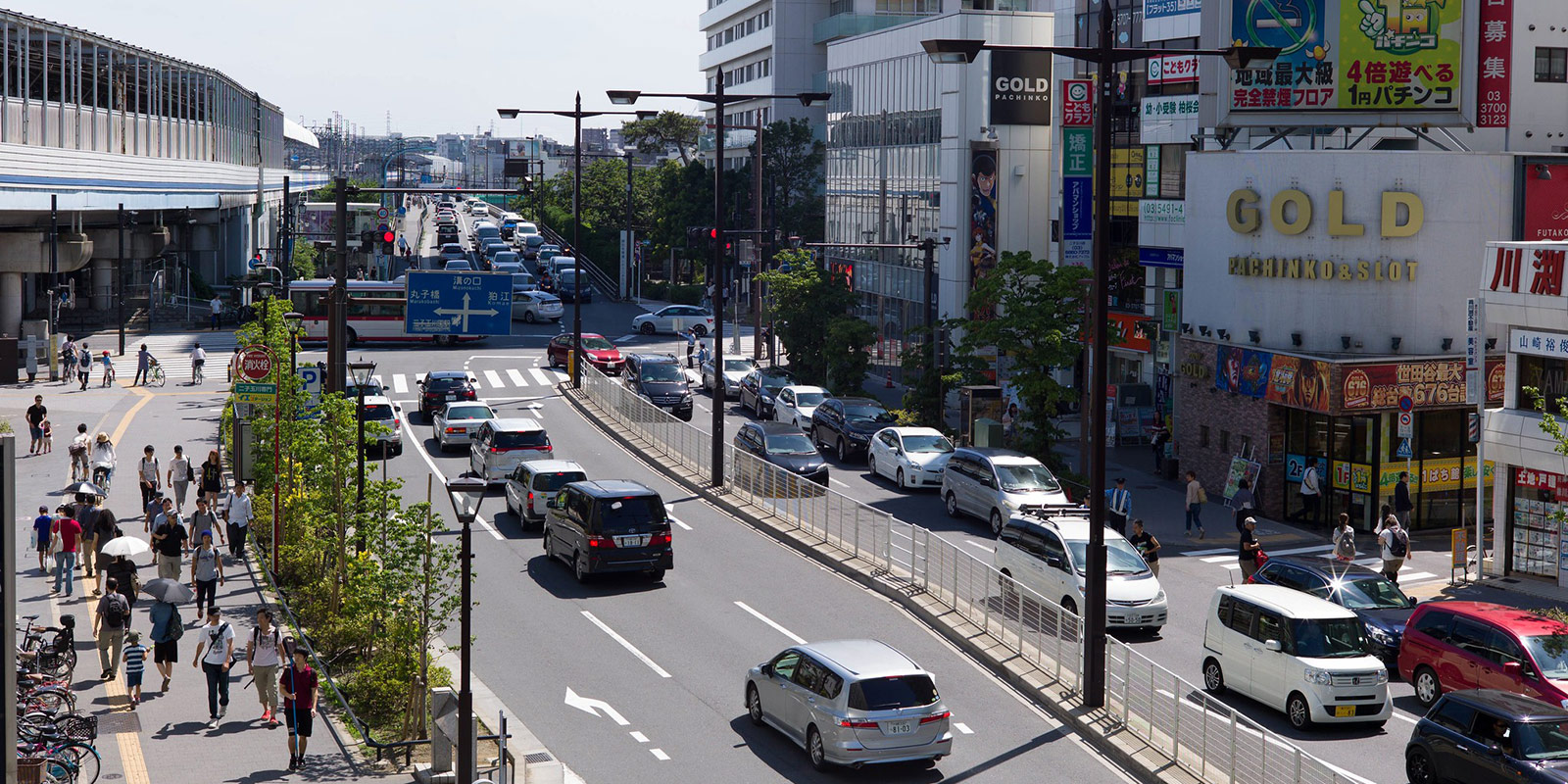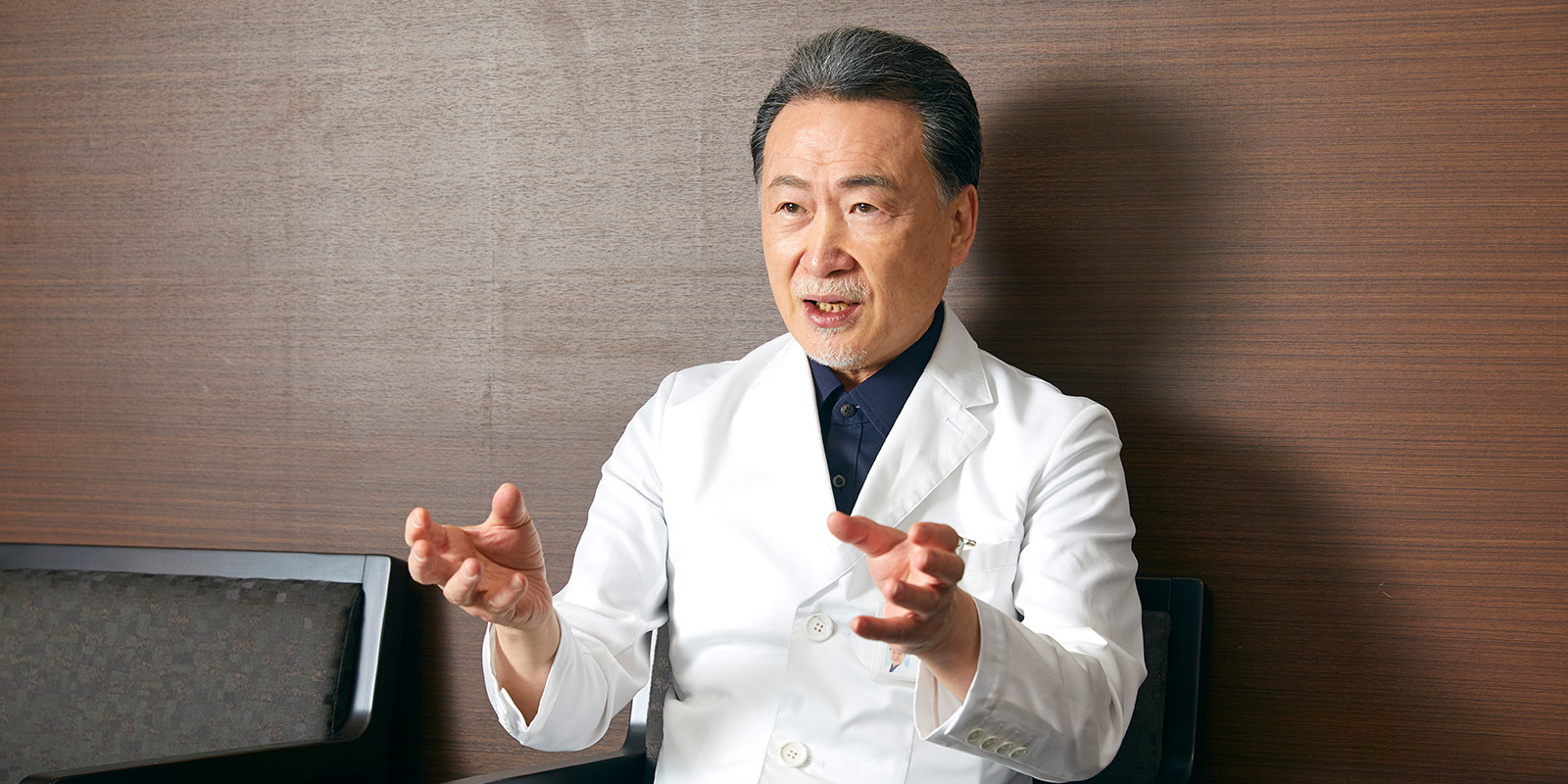Roads to recovery
Akiko Toya meets Dr. Masaharu Sakoh, whose “aggressive” approach to rehabilitation is helping stroke victims live longer and fuller lives after leaving hospital
Suffering a stroke or other brain injury is often a life-changing event that can end a person’s professional career or, especially at an advanced age, mean that the patient spends the rest of their days in bed. In rapidly graying Japan, the number of people rendered immobile and dependent on around-the-clock care as the result of brain trauma—already notably high in comparison to other developed countries—is growing at an alarming rate.
With the right rehabilitation program, making a virtually full recovery from a brain injury is possible
But with proper treatment and the right rehabilitation program, making a virtually full recovery from a brain injury is possible, even later in life. In Japan, one of the most influential proponents of that inspiring message is Dr. Masaharu Sakoh, director of Tokyo’s Nerima Ken’ikukai Hospital and a leading authority on brain rehab. Sakoh advocates a regimen of “aggressive rehabilitation,” which is based on starting rehab as soon as possible after the injury and minimizing bed rest to improve the patient’s cardiopulmonary function and rebuild their physical and cognitive abilities. The aim is to quickly recover the ability to stand up and walk—the key to an active life—and then work on mobility, stamina, and communication in order to allow the patient to return to life outside the hospital.
 Futako-Tamagawa in southern Tokyo | Futako Tamagawa/cc
Futako-Tamagawa in southern Tokyo | Futako Tamagawa/cc
Brain power
Sakoh, who worked as a neurosurgeon for nearly two decades, decided to specialize in rehabilitation after three years spent teaching at Aarhus University in Denmark. There he studied the brain’s remarkable ability to heal itself and how neuroscience can be employed to design more effective forms of rehab. “I saw so many brain injury patients struggle after being released from hospital,” he says. “I thought it was important to figure out how to help those people who don’t recover [sufficiently] only with surgery and treatment, how to get them moving again.”
While many neurosurgeons pass the scalpel to younger colleagues and pivot to rehabilitation later in their careers, Sakoh decided to switch tracks before even hitting his prime. In addition to helping stroke victims return to an active, independent life, he lobbies urban planners to take the elderly and those with health complications better into account when designing streets and neighborhoods. Sakoh’s ideas have been adopted by several municipalities, with his suggestions reflected in the layout of areas such as Futako-Tamagawa in southern Tokyo and the “Healthy Road” in Hatsudai, which features well-lit, accessible pavements lined by health and welfare facilities.
“I saw so many brain injury patients struggle after being released from hospital. I thought it was important to figure out how to help those people”
 Dr. Masaharu Sakoh | Kisa Toyoshima
Dr. Masaharu Sakoh | Kisa Toyoshima
“Countries like Japan have the resources to make it possible for people to remain happy and productive longer”
“My work in community design is based on encouraging people with diminished physical or mental capacities to get out into the world and enjoy themselves,” says Sakoh. “It’s an extension of rehabilitation; a way to increase the social impact of what I do.” But challenges still remain on this front, especially when it comes to getting the rest of society on board. Japan’s long-term care insurance system pays for day care and services for the elderly and people with disabilities, with about 60,000 facilities nationwide offering such services. “But none of those espouse aggressive rehabilitation yet,” says Sakoh. “I’d be happy to share my expertise to change that, so that patients can continue to receive the care they need after being discharged.”
“Countries like Japan have the resources to make it possible for people to remain happy and productive longer”
Sakoh’s wish may come true sooner rather than later, as his ideas are gaining prominence both in super-aging Japan and overseas. A nationwide mayors’ forum recently invited him to give a keynote lecture, and he will also be speaking at the international Ageing Asia Innovation Forum in Singapore this May. “There’s great interest in the field of rehabilitation and in how to prolong people’s active lives,” Sakoh says. “Countries like Japan have the resources to make it possible for people to remain happy and productive longer, and our elderly have the desire and ability to do so.” And the doctor himself has no plans to slow down with age. “I intend to keep working until I hit 103,” he says with a laugh.